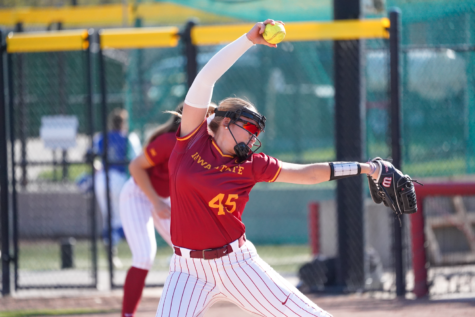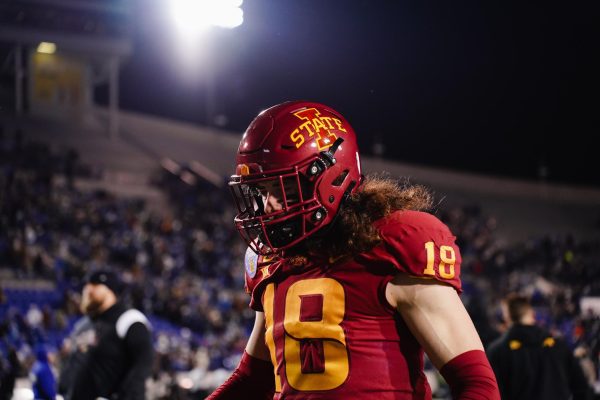ISU men’s golf to hit the east coast for the first time this spring
March 9, 2014
Rain and wind persisted on Saturday at the Big Four Match in Phoenix. Icy conditions canceled a connecting flight home from Dallas on Sunday. All in all, it was an unusual weekend for the ISU men’s golf team.
Though the team was no longer able to fly home, they were fortunate enough to be in Dallas at the same time as the ISU swimming and diving team was there for the Big 12 Championships. The golfers ended up joining their aquatic friends for a 15-hour drive home through Big 12 country.
After the odyssey that was the team’s trip to Arizona, where Iowa State finished in second place at the Big Four Match, the team now faces a quick turnaround. The Cyclones will next compete in the General Hackler Championship in Myrtle Beach, S.C. on March 10 and 11.
Similar to how the windy conditions at the Big Four Match tested players’ shot-making abilities, the TPC Myrtle Beach course’s coastal breezes could provide a similar challenge.
“My ball flight is a little higher so I have a little more trouble with the wind, but I also have the shot to hit it lower,” said junior Scott Fernandez. “We practice here (in Ames) in the summer and it’s always windy, so that’s nothing new for us. I think it’s an advantage for the whole team if it’s windy out there.”
Forecasts call for winds of 10-15 miles per hour during tournament play Monday and Tuesday, a notch below what ISU coach Andrew Tank said the team saw in Phoenix.
“On Saturday it was probably close to 20-25 miles per hour,” Tank said. “I was pretty happy that we got to see some wind. The first two trips we took, it was dead calm.”
Playing on the east coast will also be an adjustment after the team’s first three trips were to Arizona or California. Gauging how far the ball is carrying in relation to the elevation — or lack thereof — is an aspect the players will have to take into account.
“We need to do a good job in the practice round because some places the ball flights a little more, a little less,” Fernandez said.
Fernandez estimated the ball traveled five to six yards farther than normal in Phoenix due to the higher elevation, but that it should level out in the flatter climate of South Carolina.
The TPC Myrtle Beach course is a Bermuda grass course, different to most courses the Cyclones played or practiced on this spring that were bent grass. The team has played on Bermuda at tournaments in Louisiana and North Carolina in the spring, and redshirt sophomore Collin Foster said the team’s practices have not been altered.
“The team handles Bermuda pretty well because we’ve got the Aussies (Sam Daley and Ruben Sondjaja) that pretty much grew up on that. It’ll be fine,” Foster said. “The course style will probably be a little bit different, but it hasn’t affected the type of practice we’ve been doing. If you’ve been hitting it well, you’re going to hit it well [on Bermuda].”
Foster will be making his first official start of the spring season after his play at the Big Four Match, an unofficial event, earned him more playing time.
“He played pretty solid, especially in his match against Iowa he shot even-par,” Tank said of Foster. “That was his first trip of the spring, so I saw some good signs that he’s only going to improve as he gets a few more tournament rounds under his belt.”
Foster attributed the strides he’s made in his game to a change in mental approach.
“I have a tendency to overthink certain things. I’m a bio major and that major’s pretty fitting because I have a “if, then” type of thinking,” Foster said. “If I hit a type of swing and the ball goes there then if I try that it should do this. So if I hit a poor shot in one direction, I have the tendency to overcorrect the other way.”
To break from overcorrecting and overthinking, Tank and Foster have been working to disconnect his previous shot with his current shot.
“Trusting the swing that I have and know that the next shot is unrelated to the previous one,” Foster said.
















